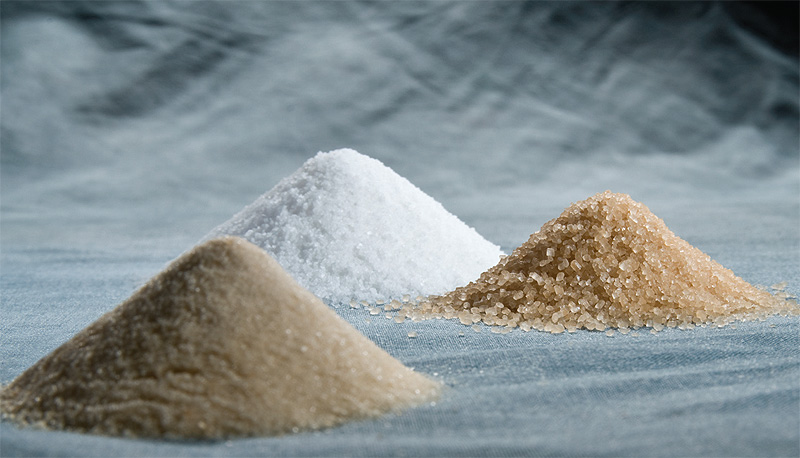
The Real Good Food Company
Sweet success
Investing in new facilities and machinery, The Real Good Food Company is now looking to further its brand within the marketplace
Since its beginnings in 2003 The Real Good Food Company (RGFC) has expanded rapidly to become a market leader in the baking ingredients and sugar sectors. The company has grown primarily by acquisition with notable purchases including Hayden’s Bakeries Ltd in 2003 and Napier Brown Food Plc in 2005. RGFC has three main subsidiaries – Hayden’s Bakeries, which is a leading producer and supplier of bakery products and desserts, Renshaw, a manufacturer of baking ingredients and Napier Brown, the UK’s largest independent non-refining distributor of sugar. This company buys beet sugar from refiners across the UK and northern Europe and also sells cane sugar, which it purchases direct from a number of producers in Africa.
RGFC has a number of manufacturing sites within the UK, each dedicated to one of the company’s three core businesses. Pieter Totte, chairman and founder of RGFC, explains: “We have a site in Liverpool and a sister site in Carluke, which produce over 250 products for the Renshaw brand, including marzipan, cake coverings, baking chocolate and jam. At our Napier Brown site in Normanton (West Yorkshire) we pack sugar for retailers throughout the food industry, including speciality and organic sugars. We also have a site at Thornbury, near Bristol, which is a dairy ingredients trading business, and finally our Hayden’s Bakeries business at Devizes, which produces bakery products and desserts.”
One of RGFC’s key strengths lies is the wide range of products it produces across the retail, industrial and food service industries. This variety prevents the company from being too reliant on one commercial area and therefore less susceptible to changes within the market. One example of this is the developments within the sugar industry as Pieter comments: “In the last few years there have been a number of changes in the EU sugar regime, which I feel we’ve come out of very strong. The changes had affected sugar prices in a big way but now we can see growth in volume and profitability, which hasn’t been the case in the last three years.”
In an industry dominated by high volume production, Hayden’s Bakeries continues to fly the flag for high quality and often hand-finished bakery products. Specialising in fruit and cream cakes, Hayden’s Bakeries uniquely works to order to ensure that clients receive the freshest products possible. Pieter describes the set-up: “We produce about 120 fresh products daily for large retail clients including Waitrose, Marks & Spencer and Costa Coffee. Rather than producing high volumes of single products, the factory receives orders from retailers every morning. We then work to produce against those orders throughout the day, ready to be collected that afternoon for delivery to the supermarkets, so it’s a quite a unique operation.”
Having begun life with a number of acquisitions, RGFC is now seeing strong organic growth in all of its core businesses. To support this growth the company is investing in new developments and premises. “Our biggest development is probably the expansion of our site at Devizes, which has doubled our capacity for Hayden’s Bakeries and created a number of new jobs in the area. We’re also investing in new manufacturing methodologies to modernise the way we operate across all of our businesses and to improve the quality of production. New equipment will also improve efficiency, which means an increase in production per head,” says Pieter.
RGFC has established a strong export market for its Renshaw brand within the US, which continues to grow. Pieter explains the reasons behind this growth: “It’s actually caused by two factors – not only are we developing the business in the right direction, but we also commissioned research and found that the home baking market in the UK has grown 11 per cent in the past year, due to the growing popularity of home baking as a hobby.”
The company has ambitions to increase the scope of its export market in the near future. “We certainly have aspirations to develop further into other markets in particular with the Renshaw brand, as we have already proven its export potential within the US marketplace. We are getting some really good responses to our products in Europe and other markets, including Australia and New Zealand, where people are expressing an interest in our products,” adds Pieter.
Whilst the worst of the recession is over, its impact is still being felt on the industry with food inflation casting a shadow. Pieter comments on the challenges ahead: “We are facing a number of challenges as commodity prices are rising, which brings food inflation with it. Ultimately we have to pass this on to the market and this will mean a rise in prices on the shelf. It’s difficult because people need to accept that food inflation is not something that will just go away.”
Changes in eating habits over the years mean consumers are more discerning about what goes into their supermarket trolley and this is where RGFC’s high quality product range speaks for itself. “People are looking for good value for money, high quality products and are more critical about what food they buy, which is the sector that we work within,” says Pieter.
Looking to the future, RGFC has a number of schemes in progress, including the continued expansion of Hayden’s Bakeries, where a new distribution centre will open in 2011. Pieter concludes with his future visions for the company: “I see a rise in turnover and certainly a growth in profitability. We’re also looking to build our main brands, such as Renshaw, which we believe has significant potential for growth in the retail market.”